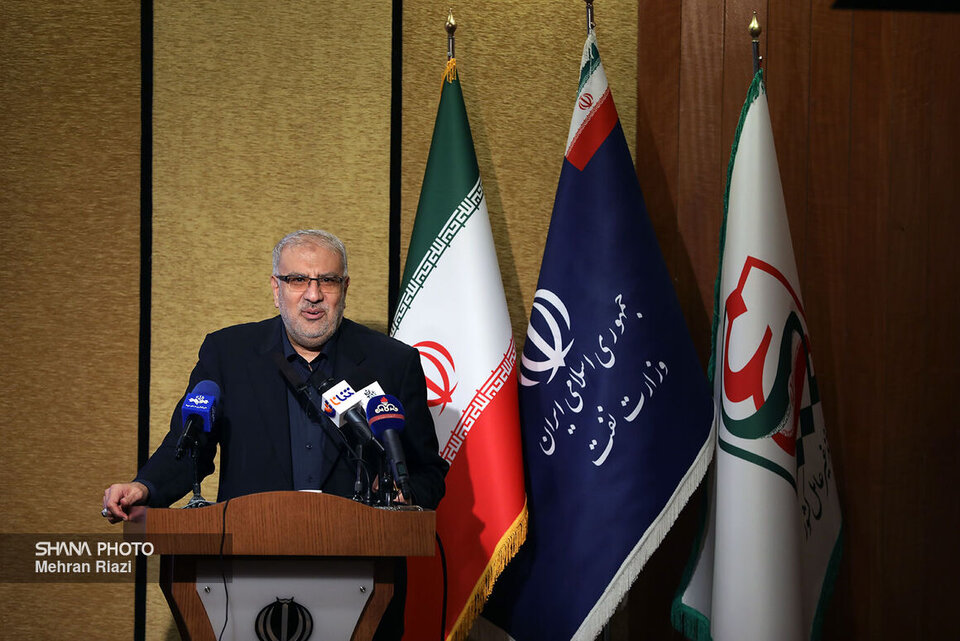The minister, who made the remarks in a meeting between heads of the executive bodies’ passive defense committees hosted by the Oil Ministry, pointed to the release of $7 billion of Iran’s gas condensate assets South Korea had frozen due to U.S. sanctions and added the condensates had been exported in late 2010s.
The important oil industry supplies hard currency and 95 percent of energy needed by the country, he mentioned.
The Oil Ministry managed to supply 100 percent of the country’s 2021 budget and 94 percent of its 2022 budget, recalled Owji, adding that is why the ministry has been always targeted by the enemies and their sanctions.
Challenges
The 13th administration was faced with different challenges, including a 250 mcm gas imbalance, 87 million barrels of gas condensates in storage offshore, and budget deficit, when it took office, recalled Owji.
“We have managed to export a major portion of gas condensates to new markets and used a part of them in the country’s refineries and petrochemical complexes,” he explained.
Iran is currently producing 700,000 to 800,000 barrels of gas condensates per day, said the minister, adding a single-day condensate export disorder could cause widespread disruption while condensate exports had been reduced to 7,000 barrels a day during the previous administration.
Touching upon a cyberattack on 4,400 gas stations of Iran in October 2021, Owji said the problem was fixed in the shortest time possible and the fuel system returned to normal.
Oil output
Iran’s crude oil production now stands at 3.19 million barrels per day (bpd), announced the minister, adding the output will rise to 3.3 million bpd within the next 10 days.
He also said Iran’s oil exports set a new record every month.
“Last year, we completed semifinished projects worth over $12 billion, including Phase 14 [of the South Pars gas field] and the second phase of Abadan Refinery, and more partly-finished projects worth $15 billion will become operational by mid-March 2024,” continued the minister.
Pointing to the transportation of C12 platform to Phase 11 of the South Pars field, Owji said production in Phase 11 with a 10 to 12 mcm daily capacity started on Friday (August 11) and its production will soar to 50 mcm a day following the drilling of more wells.
The construction of new integrated refinery and petrochemical complexes in the country such as Shahid Soleimani Refinery-Integrated Petrochemical Plant is necessary for passive defense, noted the minister, adding that the plants will help the country supply and export oil products sustainably and much easier than crude oil.
‘Most vital’ project
Owji described the pressure-boosting project in the South Pars gas field as “the most vital”, adding basic studies of the project have been almost done and domestic contractors and manufacturers will supply its platforms and turbo-compressors.
Domestic manufacturers are meeting 75 to 80 percent of the Iranian oil industry’s needs, said the minister.
The South Pars field will not produce gas with current pressure forever, he assured and concluded, “We will witness pressure drop in the field’s wells in the next three or four years and an estimated investment of at least $20 billion will be needed to address the problem.”


Your Comment